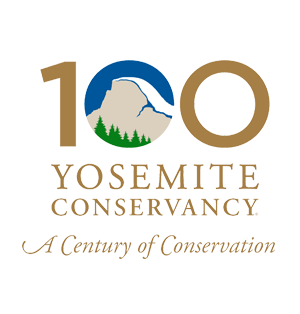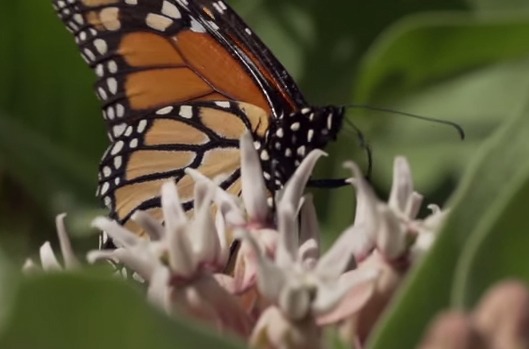*This is a 2020 archived project, view this year’s projects here.
Project goal: Expand critical breeding habitat for monarch butterflies and other at-risk pollinators in Yosemite Valley.
Why this work matters: Pollinators are essential to healthy ecosystems and to our global food system. The world’s pollinator populations, however, are declining, a trend especially evident among monarch butterflies. Data from annual counts coordinated by the Xerces Society for Invertebrate Conservation, a science-driven nonprofit focused on protecting butterflies and other invertebrates, show the number of monarchs in the western U.S. dropped by more than 97% between 1997 and 2018.
Like other pollinators, monarchs are facing serious threats from the loss of meadow ecosystems and the native plants on which they depend, including milkweed, the sole host plant for monarch eggs and caterpillars. Yosemite Valley has the potential to serve as a haven for breeding monarchs, but infrastructure and invasive plants have disrupted critical habitat.
Through this project, which built on past donor-funded pollinator-focused work, park crews and volunteers worked together to restore habitat for monarchs and other pollinators in the Valley. They removed non-native plants and planted milkweed and other native flora, focusing on areas that would not recover without active revegetation, including parts of Ahwahnee Meadow and Cook’s Meadow. In addition to creating a refuge for monarchs, bees and other pollinators, this work helped enhance biodiversity in the Valley and restore previously developed sites into healthy meadows bursting with wildflowers.
How your support helped: While the COVID-19 pandemic upended the original plans to engage school groups and large volunteer groups in this restoration work in 2020, local families, park employees, and a five-person Calaveras Healthy Impact Product Solutions crew (composed of local tribal members) pitched in; together, they volunteered hundreds of hours to help the project move forward. With your support, NPS crews and volunteers restored 6.9 acres of pollinator habitat, treated 10 acres of invasive plants in and around restoration sites, sowed more than 6,000 plants, and collected seeds from more than 50 native plant species for future revegetation projects. Your gifts allowed the park to continue creating an oasis for monarchs and other pollinators in Yosemite Valley.
Project partners: Yosemite National Park and Calaveras Healthy Impact Product Solutions (CHIPS).

